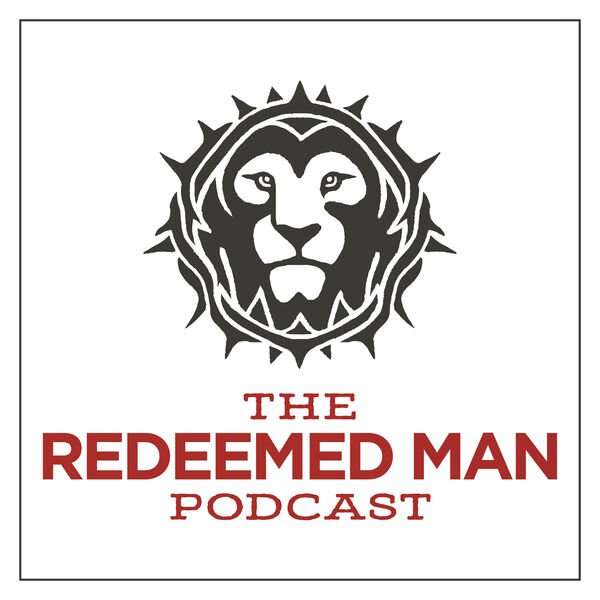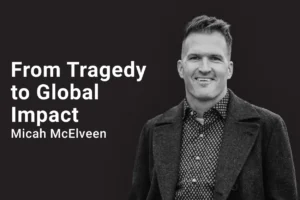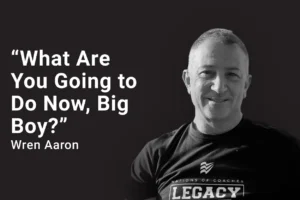Part 2: Called to Serve: Edward Graham on God’s Heart and True Success

More About The Podcast
- About
- Show Notes
About
In Part 2 of his conversation with Redeemed Director Nate Dewberry, Edward Graham, grandson of evangelist Billy Graham, reflects on what it means to be called to serve. After 16 years in the Army, Edward now leads through compassion and faith as Chief Operating Officer of Samaritan’s Purse. He shares how God’s heart has reshaped his understanding of success, purpose, and identity—reminding us that true leadership begins with humility and service.
Show Notes
Segment chapters
25:45 A new role—but a similar mission—at Samaritan’s Purse
34:40 Maintaining perspective and hope despite witnessing crisis and cruelty
40:27 Edward’s love of hunting, the outdoors, and his hometown of Boone, N.C.
43:54 You might be willing to travel the world to share the Gospel, but are you willing to cross the street?
47:51 Closing thoughts: Even manly men need to have some tenderness in their hearts
Snippets/excerpts
26:05 to 27:50—Edward describes what it’s like watching his colleagues “walk on water” as they respond rapidly to crises around the world
37:26 to 39:49—“Did Christ die just for me, did He die for that baby, or did He die for the world?”: A different perspective on the evil that exists in the world and how to fight it
45:01 to 46:14—“If you want to change the heart of man, if you want to change the world, preach the Gospel”
46:15 to 47:35—You might be willing to share the Word of God with complete strangers, but are you willing to share it with your own neighbors and family?
48:16 to 50:18—The only way to “let your heart be broken by the things that break the heart of Jesus” is for that heart to have some vulnerability and tenderness
Discussion
- Edward says Samaritan’s Purse succeeds by boldly taking on problems “only God can solve.” In your own life, how willing are you to step into challenges that require God’s power rather than your own? What keeps you from doing so?
- Edward quotes Bob Pierce, founder of Samaritan’s Purse: “Let your heart be broken by the things that break the heart of Jesus.” As a man, do you allow yourself to feel that kind of compassion and grief, or do you tend to stay guarded, keeping emotion at arm’s length? What makes it hard for you to let your heart be moved?
- What was your reaction to Edward’s statement that Christ’s heart is broken by both the suffering infant in a war-torn land and the ISIS fighter motivated by hate? Have you ever prayed for a criminal or for someone whose beliefs are completely different from yours? Have you prayed for someone who has done you wrong, and have you forgiven the person or people who hurt you
- Edward talks about how too many people these days claim to be followers of Christ but then throw out political beliefs “that [have] nothing to do with the Gospel.” Have you seen that happen – people allowing their politics to shape their faith rather than allowing Christ’s teachings to shape it? Be honest – have you ever tried to fit God’s Word around what you already believe, cherry-picking from the Bible to support your stance? What makes it so easy to fall into this trap?
- Are you more willing to talk about your faith with strangers than with your own friends or family? If so, why do you think that is? What makes those closest to you sometimes the hardest to reach?
- Of Jesus’ many traits and personality characteristics, which do you think you generally do a good job emulating in your own life, and which are you most likely to struggle with? Do you allow yourself to show the same kind of vulnerability and compassion that Jesus modeled? If not, where in your life might God be calling you to soften your heart and lead with more tenderness?
Search Podcasts
Enjoyed This Episode?
Discover more inspiring episodes of The Redeemed Man Podcast wherever you tune in!
Share This Podcast
Sign up for updates
When you sign up for this mailing list, you’ll receive regular updates for The Redeemed.
More From The Redeemed Man Podcast

Putting Porn in the Rearview Mirror
Frank Rich, who struggled with porn addiction in his own life, shares the techniques and affirmations he’s using to help other men through his Rebuilt Recovery ministry.

From Tragedy to Global Impact | Micah McElveen
Micah McElveen, founder and CEO of Vapor Ministries, narrates his path from catastrophic injury to serving the most impoverished people on earth.

“What Are You Going to Do Now, Big Boy?”
Wren Aaron, a longtime veteran of both the ministerial and coaching fields, shares some guiding principles of leadership, discipleship, and maintaining relationships.









